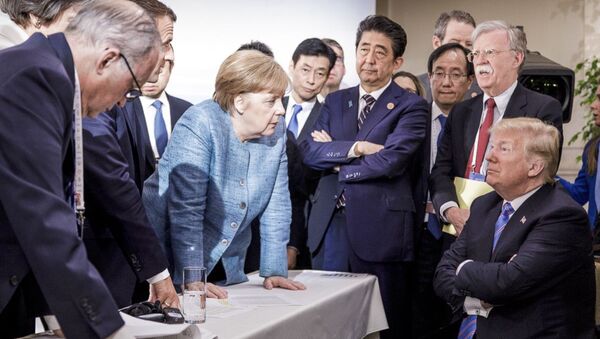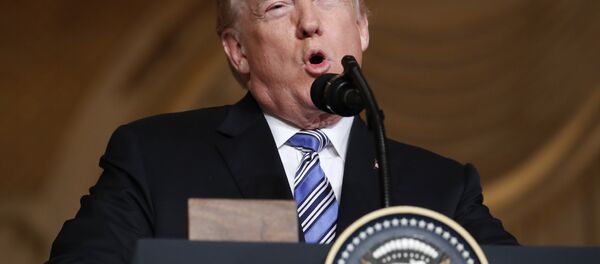Sputnik discussed this with Fabio Parenti, associate professor of economic and political geography at the Lorenzo de' Medici Italian International Institute.
Sputnik: What repercussions could the US-EU tariff war have for the car industry and trade? Who would suffer the most from this step?
Fabio Parenti: There are huge repercussions if this movement will go forward, the recent announcement to put tariffs on European cars, but the recent tariffs against Europe and other countries for steel and aluminium and so on will have minimal impact on European exports: 1% of European exports. It is surely significant for United States to keep conveying the message to Trump's voters about the idea to reindustrialise the United States, starting from heavy industries, the industrial dealers of the United States, an economy that went through a long period of de-industrialization. So this from the US side is partially reasonable; whereas from the European side it is just the breaking of WTO rules, a moment breaking the historical relations, economical and political, with the Unites States.
READ MORE: EU Mulling Reciprocal Measures Against US Car Import Tariffs — Reports
Fabio Parenti: Each side of the Atlantic will be affected in different ways. Consumers, surely, have to face higher prices, but this is not a direct, a sure effect I would say, in the sense that some firms will keep their prices unchanged, especially firms that used to sell, for example, high value, high margin products from the US in Europe.
Sputnik: Is there a feeling that there's a need to perhaps look at forming other major partnerships?
Fabio Parenti: There's a rationality from the US side to retreat from its overstretched strategy, to review and rethink the globalization model, unilateral, I would say in some sense, the globalization model based on free corporation. But, obviously, after promoting a free trade globalization model and developing a network economy and macro-regional interests nationally, the other US partners will be looking for alternatives, and are already looking at different partners.
First of all China, with the many difficulties and tension that are also in place, but the Belt and Road Initiative is also considered by many firms and countries as an alternative. Germany and Italy are having a new approach to the EU relationship with the United States. The trade tensions are just a symptom of a radical change in the balance of power at the world level. So, yes, many countries are looking for alternatives, not necessarily to absolutely replace the United States as a big partner and a market that is able to absorb most of the consistent part of the international demand, but to diversify, and this is a period in which each region, beyond the traditional alliances, is trying to diversify its international relations and economic relations above all.
READ MORE: EU's Economic Response Will Hardly Alter US Tariff Policy — Financial Expert
Sputnik: Can you comment briefly on the, as some people have called it, trade war between the US and China, how will this affect the global economy?
The views and opinions expressed in this article are those of the speaker and do not necessarily reflect Sputnik's position.



